Introduction to Medicaid Waivers and Home Care
Medicaid waivers have transformed access to home care services, enabling individuals to receive personal and medical assistance in familiar surroundings rather than institutional settings. This article explores the structure, benefits, and oversight of Medicaid waiver programs for home care, aiming to clarify how these programs operate, the role of home health agencies, and the options available through consumer-directed care initiatives like CDPAP. Understanding these components is vital for individuals and families seeking the best care solutions within Medicaid-funded frameworks.
Overview of Medicaid Waivers and Home-Based Long-Term Care
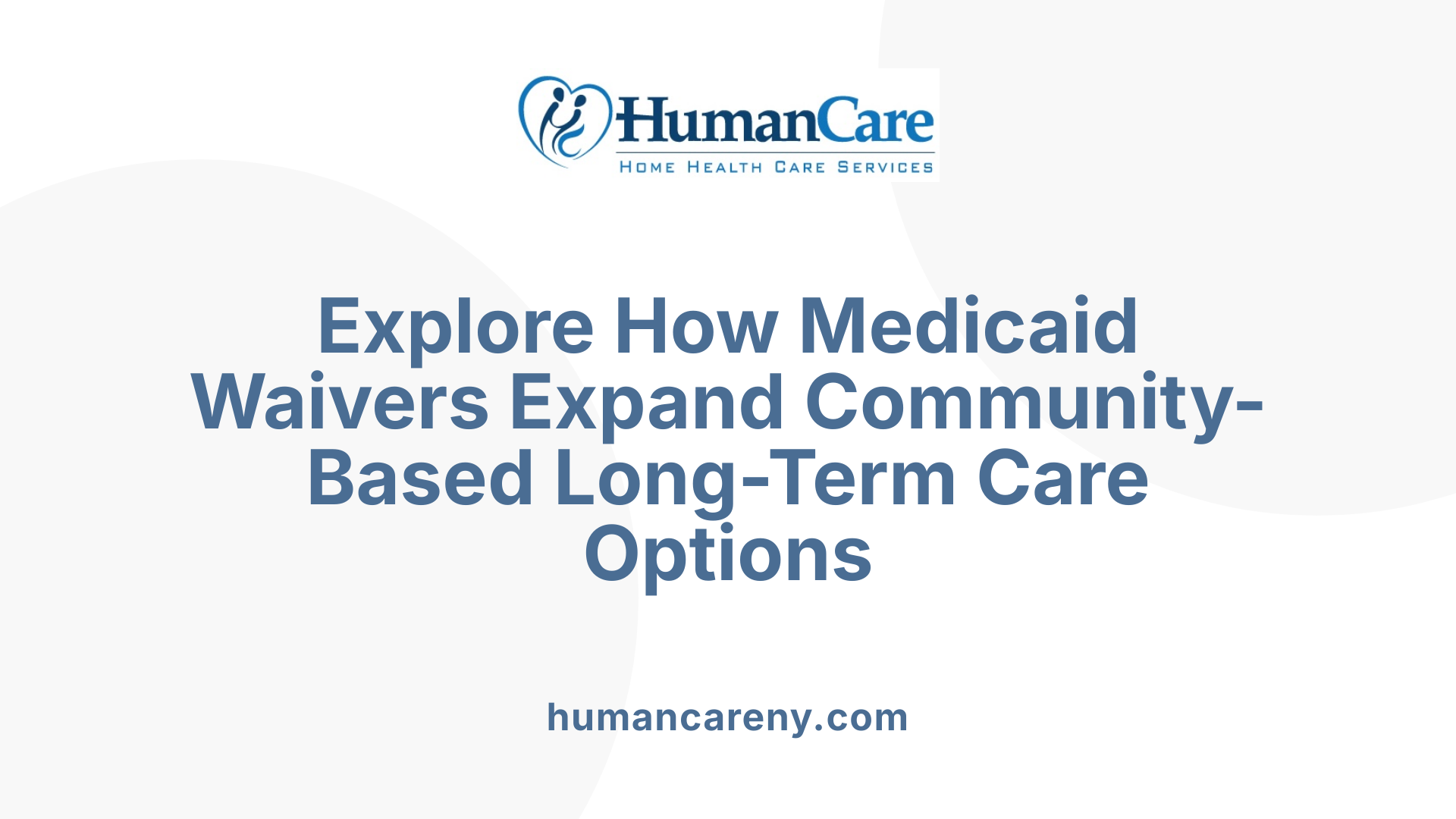
What are Medicaid Home & Community-Based Services waivers?
Medicaid Home & Community-Based Services (HCBS) waivers enable states to provide long-term care services to eligible individuals in their homes or communities rather than institutional settings like nursing homes. This approach supports personalized care tailored to an individual's needs, helping people maintain independence while receiving essential assistance.
Number and scope of active HCBS waivers nationwide
Across the United States, there are approximately 257 active HCBS waiver programs. States can operate multiple waivers to address the unique needs of different populations, such as the elderly, individuals with disabilities, or those with specific health conditions. This flexibility allows more targeted service delivery that better fits diverse client groups.
Eligibility criteria focusing on level of care and population targeting
To qualify for services under an HCBS waiver, individuals must demonstrate a need for a level of care comparable to what is provided in institutional settings. States may set specific eligibility rules based on factors like age, diagnosis, or functional requirements to ensure that those most in need receive appropriate services.
Cost-effectiveness and protections under waivers
States are required to prove that HCBS waiver services do not exceed the cost of institutional care. Additionally, comprehensive protections are in place to safeguard recipients, including adherence to individualized care plans and ensuring quality standards. This balance supports both fiscal responsibility and high-quality care delivery within community settings.
Medicaid Personal Care (MPC) and Service Delivery Models
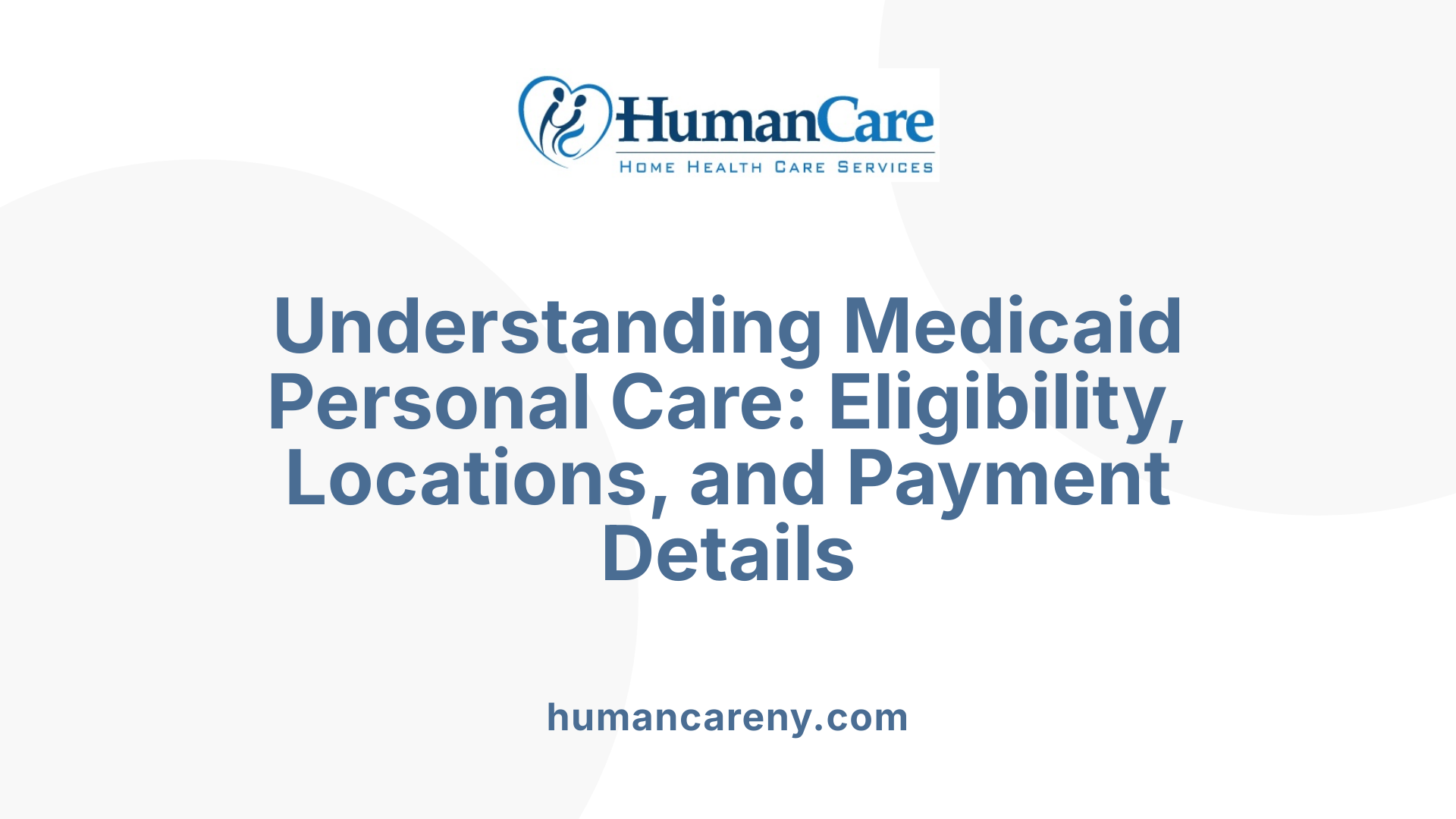
How is Medicaid Personal Care structured within state programs?
Medicaid Personal Care (MPC) operates as a state-plan benefit allowing eligible individuals to receive personal assistance based on both functional and financial assessments. Functional eligibility is determined through CARE assessments conducted by qualified case managers, nurses, or social service specialists. Individuals who qualify can access MPC services tailored to their specific needs.
Settings where MPC is provided
MPC services are available in a variety of living settings to accommodate client preferences and care requirements. These include:
- The client’s own home
- Adult family homes (AFH)
- Assisted living facilities
- Developmental Disabilities Administration (DDA) group homes
These diverse locations aim to promote independence while providing necessary support.
Authorization by Home and Community Services (HCS) and Developmental Disabilities Administration (DDA)
The authorization and oversight of MPC services are managed by Washington’s Home and Community Services (HCS) and the Developmental Disabilities Administration (DDA). These bodies ensure appropriate service delivery, coordinate care, and manage program compliance ensuring clients receive necessary personal care support.
Personal needs allowance and payment considerations in alternate living facilities
For individuals receiving MPC while living in alternate living facilities (ALFs), specific financial guidelines apply. Such individuals must maintain a personal needs allowance (PNA), which is a portion of income reserved for their personal expenses. Additionally, they are responsible for paying room and board costs up to a standard amount. These stipulations help balance client autonomy with program funding policies.
| Aspect | Description | Responsible Entity |
|---|---|---|
| Eligibility Assessment | Functional eligibility determined through CARE assessments | Case managers, nurses, social service specialists |
| Service Delivery Locations | Home, AFHs, assisted living, DDA group homes | MPC program providers |
| Program Authorization | Oversight and authorization | HCS and DDA administrations |
| Financial Requirements in ALFs | Personal needs allowance and room & board payments | Clients and Medicaid policy |
This structure supports comprehensive in-home and community-based personal care, ensuring that individuals receive care suited to their needs while maintaining regulatory compliance and financial responsibility guidelines.
Home Health Agencies: Expanding Access to Skilled and Personal Care
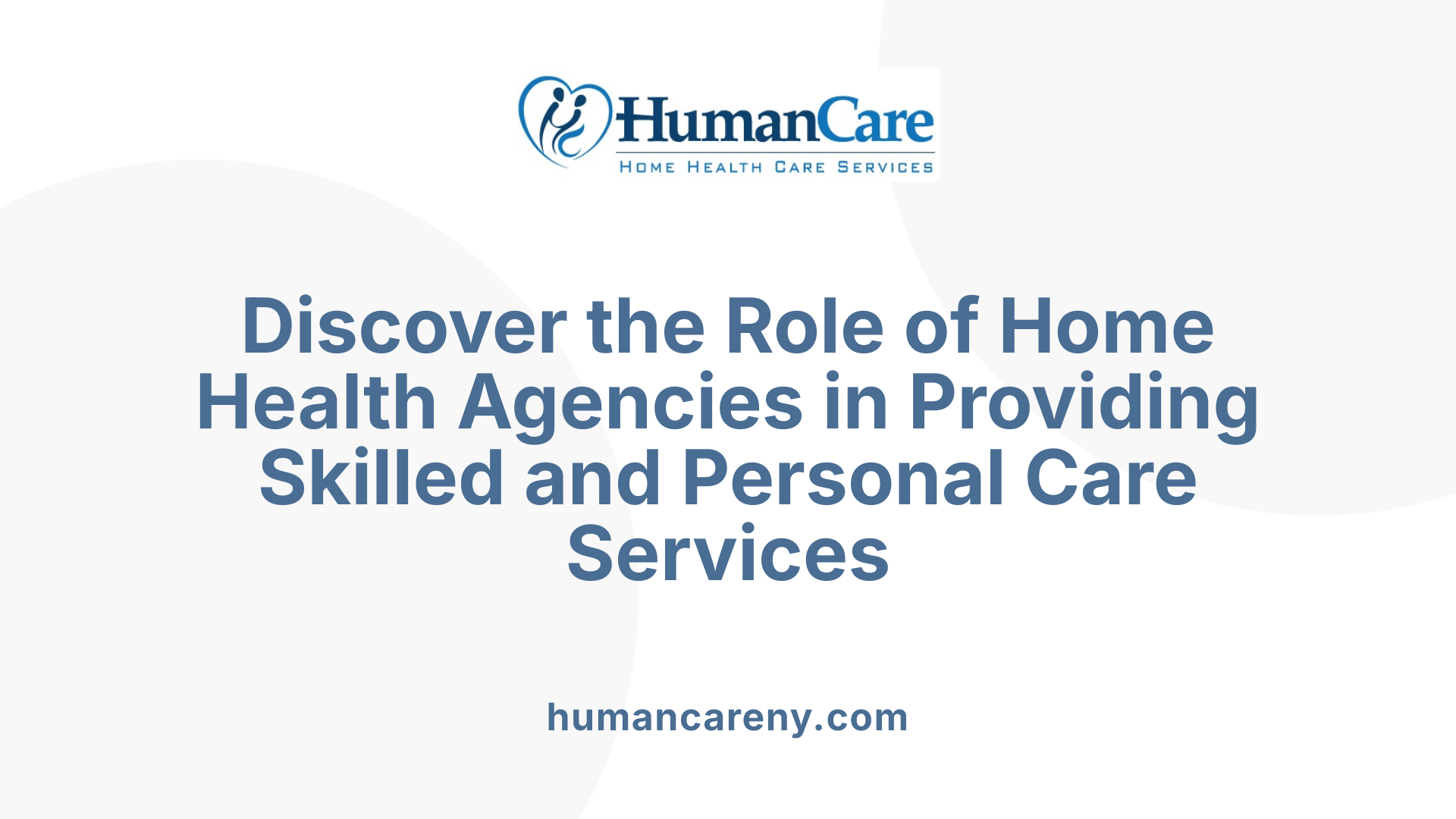
What are the primary services offered by home health agencies?
Home health agencies deliver a broad spectrum of care services to individuals who are recuperating from illness or managing chronic health conditions within the comfort of their homes. Their offerings include skilled nursing care, such as medication management and wound care, aimed at maintaining and improving patient health.
In addition to nursing, these agencies provide rehabilitative therapies including physical, occupational, and speech therapy to enhance recovery and independence. Personal care services, such as assistance with bathing, dressing, and daily activities, are also major components, supporting clients who need help with routine self-care tasks.
Moreover, home health agencies offer homemaker services, helping with household chores, and medical social support to address the emotional and social needs of clients. All aides working under these agencies are recruited, trained, and supervised by the agencies themselves, ensuring consistent and quality care delivery.
Licensing and responsibility in Washington State
In Washington State, home health agencies are licensed by state authorities, which guarantees the adherence to established healthcare standards. The licensure holds these agencies accountable for the oversight of both skilled nursing and personal care provided to clients.
This regulatory framework ensures that agencies comply with Medicaid and other long-term care program requirements, safeguarding service quality and client safety.
Role in skilled nursing and assistance with daily activities
Home health agencies play a vital role in facilitating skilled nursing care at home, offering services that might include wound management, medication administration, and monitoring of health conditions. They also assist with daily living activities, enabling individuals who have disabilities or age-related challenges to maintain independence longer.
Coordination with Medicaid and other long-term care programs
These agencies are integral to Medicaid's framework for delivering long-term care in community settings. They work closely with Medicaid programs, such as Medicaid Personal Care (MPC) and Home & Community-Based Services (HCBS) waivers, to provide authorized care that meets clients' functional eligibility criteria.
By aligning services with Medicaid’s policies, home health agencies ensure that individuals receive the supports necessary to live safely and comfortably at home, reducing the need for institutional care.
| Service Type | Description | Medicaid Connection |
|---|---|---|
| Skilled Nursing | Medication, wound care, health monitoring | Medicaid funds skilled nursing as part of long-term care |
| Rehabilitative Therapy | Physical, occupational, speech therapies | Covered under Medicaid home/community-based waivers |
| Personal Care | Assistance with bathing, dressing, daily activities | Provided through Medicaid Personal Care programs |
| Homemaker Services | Household chores, light cleaning, meal preparation | Supportive services to enhance home living |
| Medical Social Support | Emotional and social support linked to health | Integrated with Medicaid case management and care planning |
This comprehensive approach by home health agencies underscores their essential position in maintaining and enhancing the health and independence of Washington State residents eligible for Medicaid long-term care services.
Consumer Directed Personal Assistance Program (CDPAP): Empowering Choice in Care
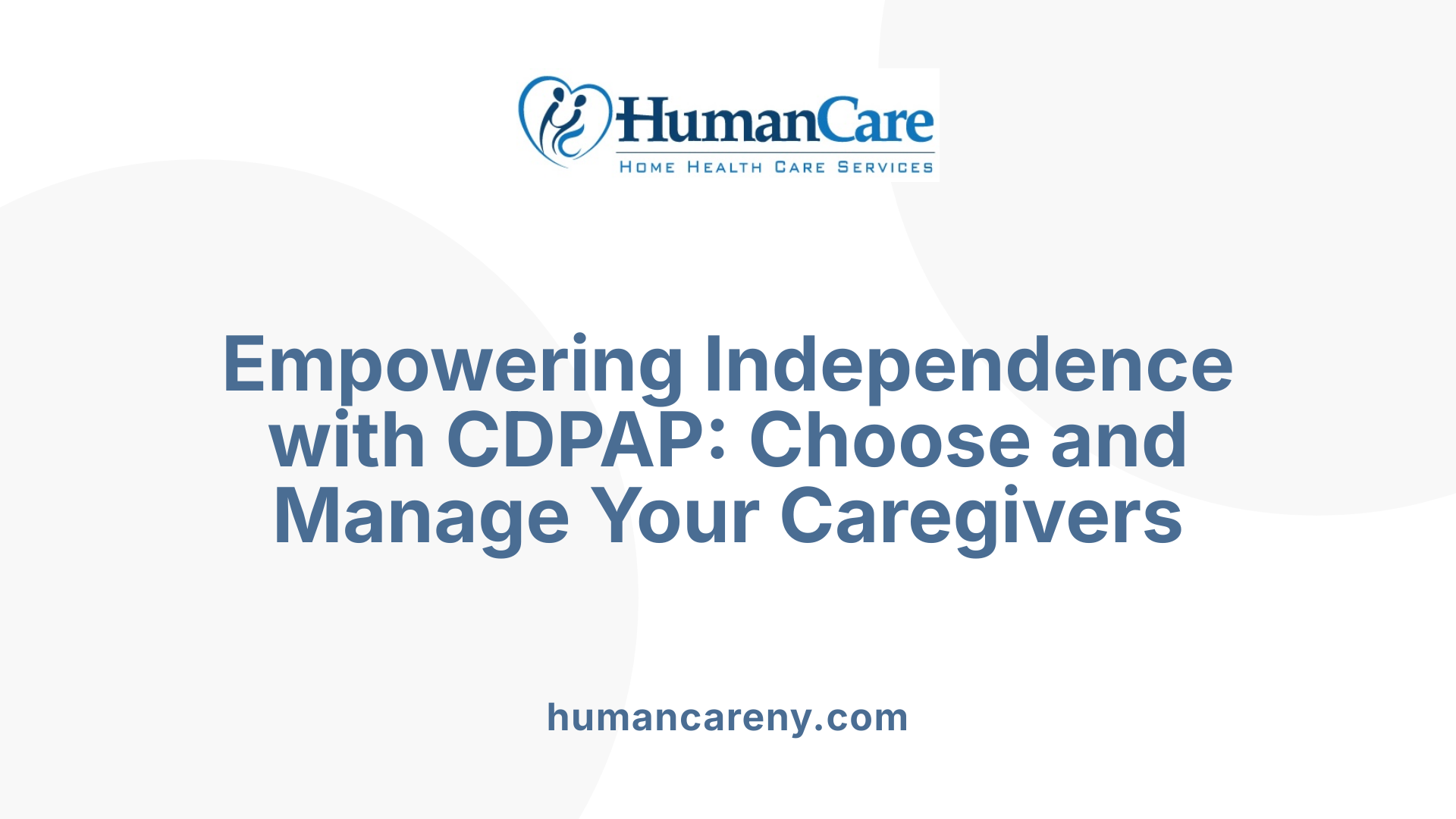
How do programs like CDPAP support in-home care?
Programs such as the Consumer Directed Personal Assistance Program (CDPAP) empower individuals to take control of their own home care by enabling them to choose and manage their caregivers directly. Unlike traditional agency-controlled services, this model allows consumers or their families to select caregivers from relatives, friends, or other trusted individuals, offering a more personalized and comfortable care experience.
This approach not only ensures tailored assistance but also delivers significant emotional and social benefits. Care recipients often enjoy stronger and more meaningful relationships with caregivers who genuinely understand their preferences and needs.
Caregivers under CDPAP receive financial compensation, acknowledging the vital role they play and aiding in the sustainability of care provision. Additionally, CDPAP allows these caregivers to perform certain medical tasks, expanding the scope of support that goes beyond basic personal care. This comprehensive assistance helps maintain recipients’ health and independence.
CDPAP is accessible nationwide through Medicaid-funded programs, ensuring broad availability. It integrates with various Medicaid State Plans and waivers that support self-directed personal assistance, making consumer-directed care an integral part of long-term care services.
The program's design highlights respect for individual autonomy, improved quality of care, and recognition of family and friends as valuable caregivers who contribute not only skilled assistance but also emotional support essential for well-being.
Financial and Eligibility Considerations in Medicaid Home Care Programs
What financial and eligibility factors affect Medicaid home care access?
Medicaid home care programs, including Home & Community-Based Services (HCBS) waivers, have specific financial and eligibility criteria to ensure that services reach those who need them most. For example, seniors applying for HCBS waivers generally must have a monthly income not exceeding approximately $2,900 and assets capped at around $2,000. These limits can vary by state and specific program requirements.
There are two main types of Medicaid programs affecting home care access: classic Medicaid and MAGI Medicaid. Classic Medicaid is designed for individuals who are aged, blind, or disabled and covers both institutional care (such as nursing homes) and community-based waiver services. MAGI Medicaid eligibility, on the other hand, is based on Modified Adjusted Gross Income, determined through tax data, and typically applies to children, pregnant women, and adults under 65. Some individuals on MAGI Medicaid may also qualify for personal care services if they meet additional functional criteria.
In alternate living facilities (ALFs), individuals receiving Medicaid Personal Care (MPC) must maintain a personal needs allowance (PNA), which is a portion of their income reserved for personal use. They are also required to contribute towards room and board costs up to a standard amount, unless eligibility rules specify otherwise. This ensures residents can retain some financial independence while receiving necessary care.
To expand and customize services, states utilize Medicaid State Plans and waiver extensions such as the 1915(c) and 1115 waivers. These allow for flexibility in service scope, geographic reach, and population targeting. The waivers enable individuals to receive home care and community-based services instead of institutional care. Some waivers also support self-directed care, permitting beneficiaries to hire and manage their own caregivers, including family members. Additionally, structured programs offer financial support and training to unpaid family caregivers to assist with in-home supervision and daily activities.
| Aspect | Description | Details |
|---|---|---|
| Income and Asset Limits | Caps on income and assets for waiver eligibility | Senior caps roughly $2,900 monthly income, $2,000 assets (varies by state/program) |
| Medicaid Program Types | Classic Medicaid vs. MAGI Medicaid | Classic covers aged/disabled with institutional/waiver services; MAGI based on tax data |
| Personal Needs Allowance (PNA) | Reserved portion of income for ALF residents | Residents pay room/board beyond PNA up to standard amounts unless exceptions apply |
| Waiver Extensions and Plans | 1915(c), 1115 waivers, and State Plan options increase flexibility | Waivers allow for home care, self-direction, targeting specific populations, and family hires |
Oversight, Audits, and Program Integrity in Medicaid Personal Care
What oversight exists to ensure Medicaid personal care program integrity?
The Medicaid Personal Care (MPC) program undergoes rigorous oversight to maintain its integrity and protect public funds. One of the primary bodies responsible for this oversight is the Office of the Inspector General (OIG), which conducts audits focused on identifying vulnerabilities within these programs.
OIG audit findings on program vulnerabilities
Audits by the OIG have revealed common issues such as the presence of ineligible beneficiaries and improper Medicaid payments. These vulnerabilities highlight areas where the program might be exploited or where compliance policies require strengthening.
Specific audit reports and ongoing oversight efforts
Several audit reports (including Report Numbers A-02-16-01026, W-00-16-31035, W-00-20-31035, and A-07-20-03243) document ongoing efforts to review and enhance program compliance. These audits not only evaluate financial transactions but also assess operational procedures to ensure Medicaid funds are used appropriately.
Importance of agency staff responsibilities in eligibility and service authorization
Agency staff play a crucial role in safeguarding the program by diligently determining client eligibility, authorizing MPC services properly, and managing cases effectively. The program manual outlines these responsibilities clearly, emphasizing that strong case management is vital to maintaining service quality and preventing misuse.
Together, these oversight mechanisms form a comprehensive system that supports accountability and helps ensure that Medicaid personal care services are both effective and appropriately delivered.
Additional Supports and Services Complementing Medicaid Home Care
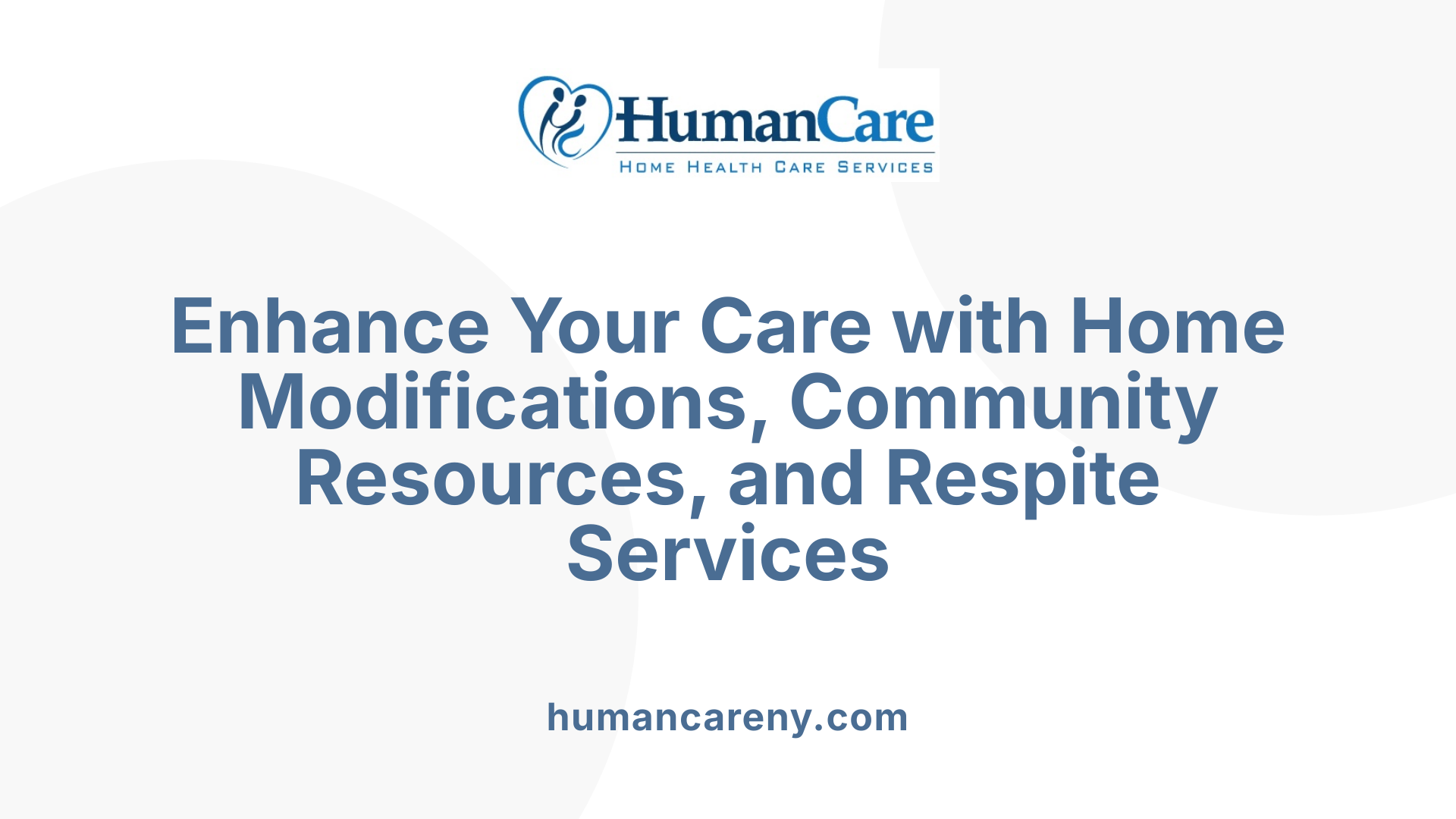
What other supports are available to individuals receiving Medicaid home care?
Medicaid home care recipients benefit from a variety of additional supports designed to enhance their safety, independence, and overall well-being. These complementary services help create a more comprehensive care environment beyond basic personal assistance.
Home modifications and assistive technology
To improve accessibility and safety at home, individuals may receive home modifications such as ramps, grab bars, and emergency response systems. These changes help reduce fall risks and enable clients to move around their homes more easily.
Community resources like adult day centers and transportation
Adult day centers and adult day health programs provide social interaction, supervised activities, and health monitoring during the day. Transportation services are available to help seniors access medical appointments and community events, addressing mobility barriers.
Programs such as PACE for seniors with complex needs
The Program of All-Inclusive Care for the Elderly (PACE) caters to seniors, including those living with Alzheimer's or dementia, offering coordinated medical care and social support. This program supports aging in place for individuals with complex health conditions.
Hospice and respite care options
Hospice care addresses the physical, emotional, and spiritual needs of terminally ill patients and their families, often including in-home support. Respite care provides temporary relief for caregivers, ensuring they have breaks while maintaining continuous care for their loved ones.
Nurse Delegation Program and caregiver training
The Nurse Delegation Program trains caregivers to perform certain nursing tasks safely at home under nursing supervision. This training expands the scope of care that can be provided in a home setting, enhancing skill levels for informal caregivers and aides.
Together, these supports complement Medicaid home care services, helping individuals maintain independence and improving quality of life within familiar surroundings.
Conclusion: Maximizing Medicaid Waiver Benefits for Quality Home Care
Medicaid waiver programs serve as a vital resource by enabling a wide range of home care services tailored to individual needs in community settings rather than institutions. Understanding the eligibility requirements, service delivery models including agency-based care and consumer-directed options like CDPAP, and the financial frameworks supporting these services equips individuals and families to access the most appropriate care. Robust oversight ensures program integrity, while supplementary resources help foster independence and well-being. By leveraging these Medicaid-funded opportunities, recipients can achieve safer, more personalized, and sustainable home care experiences.
References
- Medicaid Personal Care | Washington State Health Care ...
- Consumer-Directed Personal Assistance Program - OIG
- Home & Community-Based Services 1915(c)
- Services that help an adult remain at home
- Getting Paid as a Caregiver by Medicaid
- Home Health Services Coverage
- Types of Home Health Care Services
- Differences in Home Health Services and Outcomes ...



